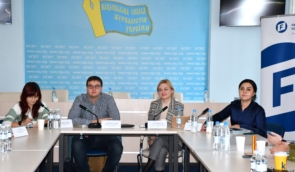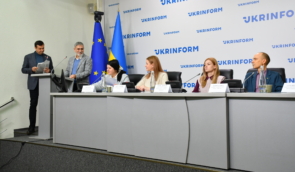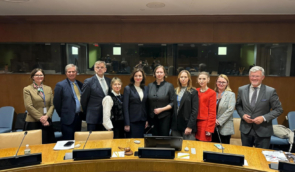10 years of reforms: what was achieved and what challenges are currently facing Ukraine
Transformations, new rules of the game, processes and approaches that have been taking place in Ukraine for the last 10 years are very important for modernization and institutional changes. They occur simultaneously with a long and exhausting war. On October 18, representatives of the public sector and experts spoke about where and how we have been moving in the last decade, which reforms have been successful and what challenges Ukraine is facing today during the discussion “Reforms for an encore: a meeting in the theatre”. The event was organized by Vox Ukraine.
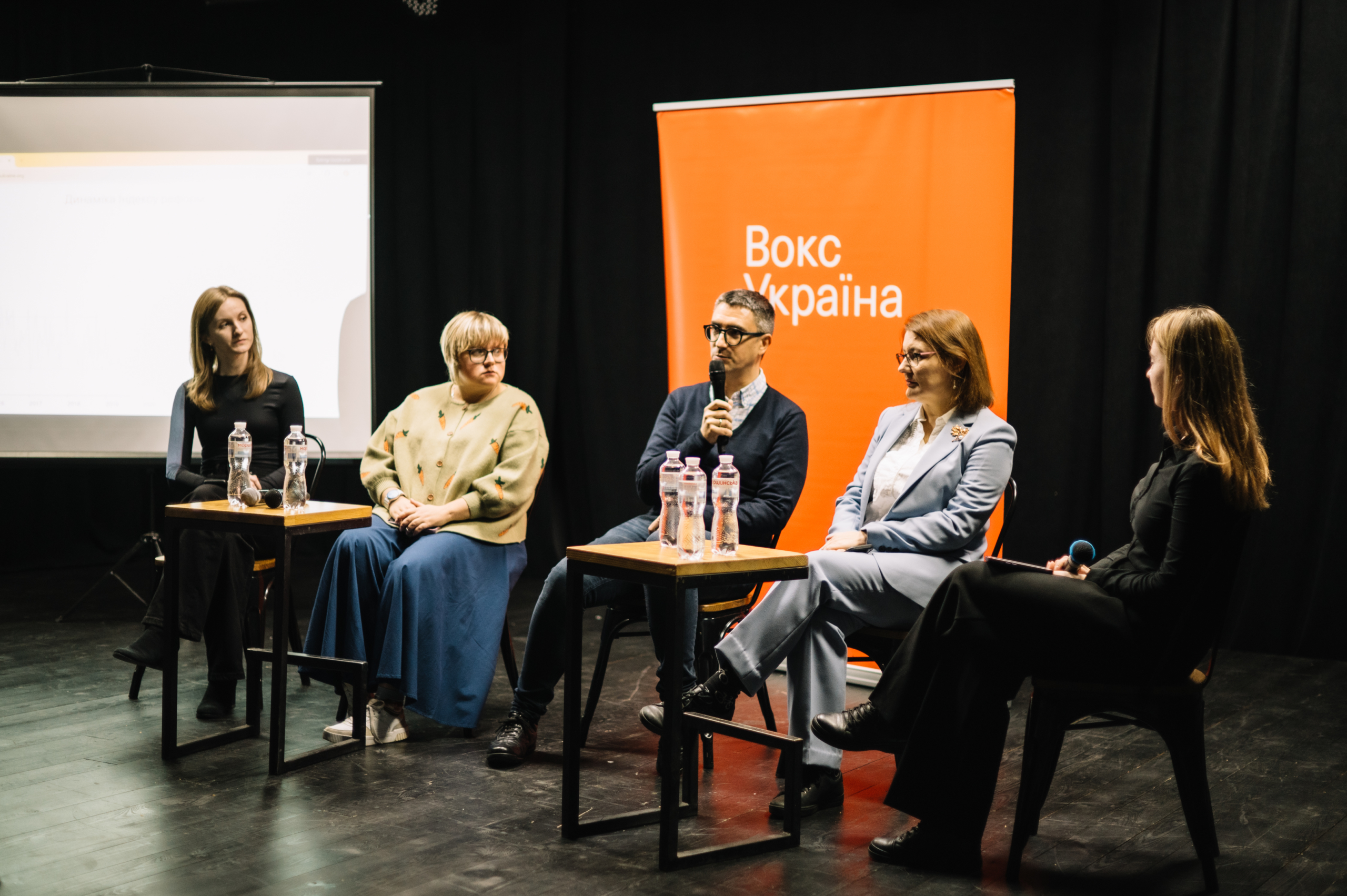 Viktoriia Vyhovska, Alena Lunova, Hlib Vyshlinsky, Iryna Kosse, Viktoriia Ahapova
Viktoriia Vyhovska, Alena Lunova, Hlib Vyshlinsky, Iryna Kosse, Viktoriia AhapovaOpening the discussion, Scientific Editor of “Vox Ukraine” Ilona Sologoub noted that the “Index of Reforms” project is almost 10 years old.
“During this time, we evaluated 1,700 regulatory acts. This means that reforms in Ukraine continue despite the war. I don’t know if the Guinness Book of Records is following us, but we are the longest volunteer project in Ukraine. This year we will have a culture section – it is symbolic that you and I met this time on the premises of the theatre,” said Ilona Sologoub.
 Ilona Sologoub
Ilona SologoubThe role of civil society in reforming the country during the war
According to Alena Lunova, the Advocacy Director of the Human Rights Centre ZMINA, the biggest challenge in overcoming the consequences of the war today is maintaining ties between the state and people who are under occupation or have gone abroad.
“Unlike the economic component, in the field of human rights protection, it is very difficult to measure what happened with numbers. Sometimes what didn’t happen is even more important. And now, in the context of overcoming the consequences of the war, working with displaced persons, developing policies for working with people affected by the war, we are not in the worst position. In 2014, Ukraine developed basic regulatory documents that allowed for the construction of a framework and policies related to war. However, there are still many issues with benefits for people living under occupation. They become invisible to the state. The situation is the same with those who went abroad. Therefore, the biggest challenge now is to maintain connections with these people. Not even the protection of their rights, namely communications, provision of services and development of a policy of reintegration and support for the affected population,” Lunova emphasizes.
Another challenge, according to the Advocacy Director of the Human Rights Centre ZMINA, is justice and justice.
“If in 2014 we (the public sector) forced law enforcement agencies to document war crimes, then in 2022 we no longer had to do this. But now it is not clear what to do with more than 150 thousand war crimes. How can the justice system today respond to this against the background of scandals with corruption of prosecutors and judges? Therefore, at the moment, we need to think about other mechanisms to support the victims in matters of restoring justice,” says Lunova.
The Director of Advocacy explains that the third challenge is an equally important one — the strengthening of the civil sector, which today suffers from a lack of personnel and expertise and at the same time is in demand by state institutions.
“We can influence politics, we feel the need for us on the part of the state, but it turned out that we cannot always offer solutions. That’s why we need to professionalize,” sums up Alena Lunova.
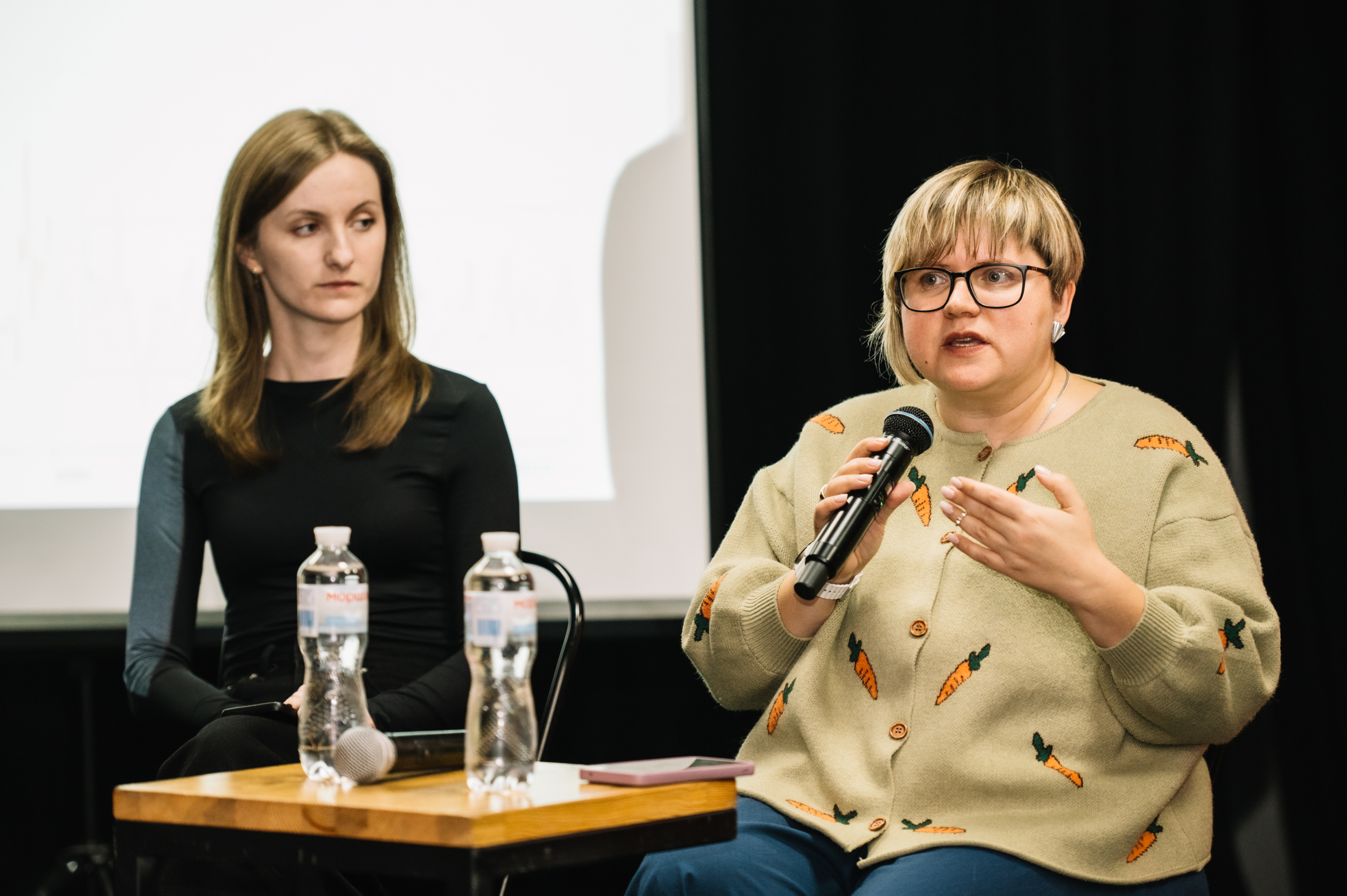 Viktoriia Vyhovska and Alena Lunova
Viktoriia Vyhovska and Alena LunovaFor 10 years, Ukraine has not managed to achieve an economic breakthrough
Hlib Vyshlinsky, Executive Director of the Center for Economic Strategy, believes that the state has not managed to make a breakthrough in 10 years.
“We fluctuated within the limits of 2-3% economic growth and before the start of the full-scale invasion, we were not able to reach the level we had in 2013. If we talk about the reform index, there was a spike in 2014-2015. Then it went into decline. Then a new government came and there was a period of active reforms, and again a decline. Then a full-scale invasion, which, in fact, gave impetus to European integration reforms,” Vyshlinsky notes.
At the same time, he adds that we are still moving towards progress, but the remnants of the system hold us back and this system is being reborn in the conditions of martial law.
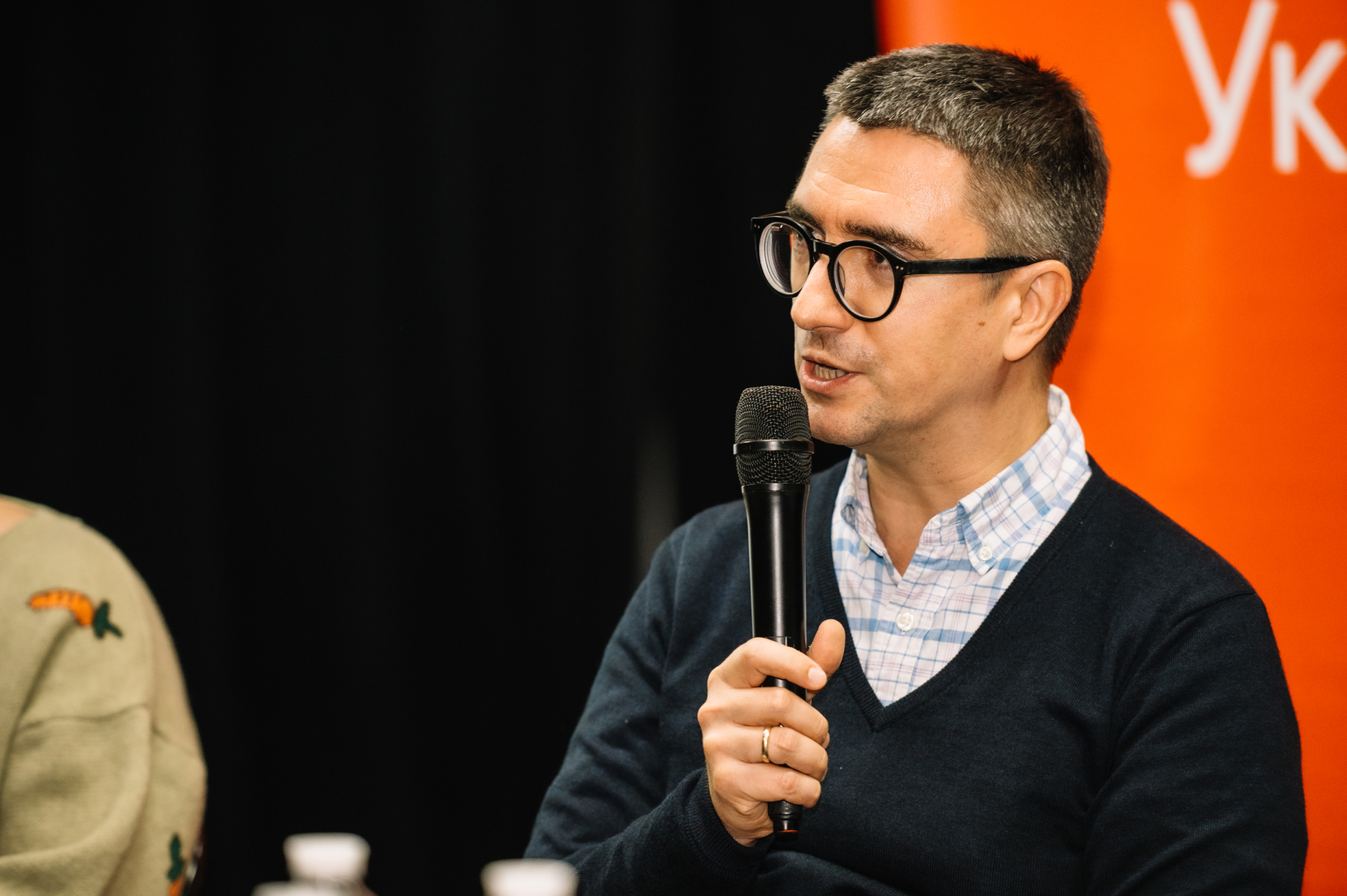 Hlib Vyshlinsky
Hlib VyshlinskyVitaliy Vavryshchuk, Head of the Macroeconomic Research Department of the ICU Group and Co-Founder of the “Reform Index” is more optimistic.
“We now live in conditions of a fundamentally different economy and financial system. Actually, the rules of the game have changed. If we had been told 10 years ago how the market and the banking sector would work today, we would not have believed it. We made sure that the reforms are important and have an effect on the Ukrainian economy, and this became visible during the full-scale invasion. After that, the market changed and narrowed, but the economy survived. Over the past 10 years, we stopped looking for unique recipes for reforms and accepted the fact that what works in the EU also works here. This is a huge achievement.” says Vitaliy Vavryshchuk.
Iryna Kosse, a Leading Researcher at the Institute of Economic Research and Policy Consulting, who specializes in transport issues, also notes that many more changes await Ukrainians. “As experts, we look ahead and understand how much more needs to be done. First of all, tax and customs reforms. And this is a tiny part of our needs. There is the issue of corruption, the completion of judicial reform. And then there is European integration. The work is an unfinished end,” says Iryna Kosse.
Viktoriia Vyhovska, an Analyst at “Vox Ukraine”, who analyzes the compliance of Ukrainian legislation and legislation with IMF requirements, notes that in order to receive assistance from international financial institutions in full, Ukraine still needs to carry out more than 70 reforms in various areas.
“There are many ideas, great ideas, but often there is a lack of political will, there are no people who will take responsibility for the implementation of these ideas. This is the problem with the Ukrainian system,” Viktoriia Vyhovska is convinced.
 Photo: Vox Ukraine
Photo: Vox UkraineIf you have found a spelling error, please, notify us by selecting that text and pressing Ctrl+Enter.

